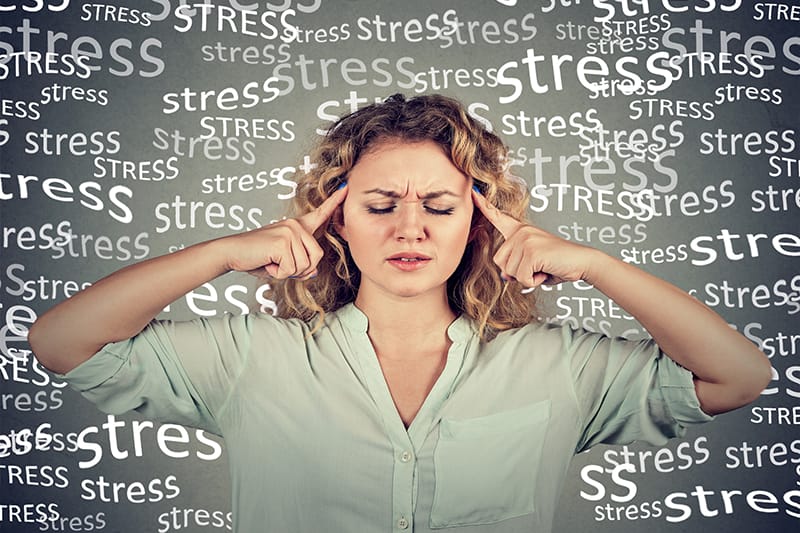Stress is a natural response to challenges and demands, but chronic stress can have severe consequences for both the body and mind. Understanding the science behind stress can help individuals manage it effectively and maintain overall well-being.
What is Stress?
Stress is the body’s reaction to any demand or challenge. It triggers physiological and psychological responses that prepare an individual to handle threats, also known as the “fight-or-flight” response.
Types of Stress
- Acute Stress: Short-term stress that arises from immediate challenges.
- Chronic Stress: Long-term stress that persists over time, often due to ongoing life difficulties.
- Episodic Stress: Frequent acute stress that becomes a pattern in one’s life.
How Stress Affects the Body
1. The Role of Cortisol and Adrenaline
When stressed, the body releases hormones like cortisol and adrenaline, which increase heart rate, blood pressure, and energy levels. While beneficial in the short term, prolonged exposure to these hormones can be harmful.
2. Effects on the Immune System
Chronic stress weakens the immune system, making the body more vulnerable to infections and illnesses. Stress-induced inflammation is also linked to autoimmune diseases and slower wound healing.
3. Impact on the Cardiovascular System
Prolonged stress increases the risk of heart disease by raising blood pressure, cholesterol levels, and inflammation. It also contributes to unhealthy coping mechanisms such as overeating or smoking.
4. Digestive System Disruptions
Stress can lead to digestive issues like irritable bowel syndrome (IBS), acid reflux, and stomach ulcers. It can also affect appetite, leading to overeating or loss of appetite.
5. Hormonal Imbalances
Stress disrupts hormone production, leading to irregular menstrual cycles, reduced libido, and increased risk of metabolic disorders like diabetes.
How Stress Affects the Mind
1. Cognitive Decline and Memory Issues
High levels of stress impair cognitive function, making it harder to concentrate and remember information. Chronic stress is also linked to neurodegenerative diseases like Alzheimer’s.
2. Anxiety and Depression
Stress contributes to anxiety and depression by altering brain chemistry. It affects neurotransmitters like serotonin and dopamine, which regulate mood and emotions.
3. Sleep Disturbances
Stress can lead to insomnia, frequent awakenings, and poor sleep quality. Lack of sleep further exacerbates stress, creating a vicious cycle.
4. Behavioral Changes
People under stress may develop unhealthy habits such as emotional eating, substance abuse, or social withdrawal, which can worsen mental health.
Managing Stress Effectively
1. Exercise and Physical Activity
Regular exercise releases endorphins, which help reduce stress and improve mood. Activities like yoga and walking can also promote relaxation.
2. Mindfulness and Meditation
Practicing mindfulness and meditation can lower cortisol levels and enhance emotional resilience.
3. Healthy Nutrition
Eating a balanced diet rich in fruits, vegetables, and lean proteins helps regulate stress hormones and improves overall well-being.
4. Adequate Sleep
Getting at least 7-9 hours of quality sleep each night is essential for stress management and cognitive function.
5. Social Support and Therapy
Talking to friends, family, or a therapist can provide emotional support and effective stress-coping strategies.
Conclusion
Stress is an inevitable part of life, but chronic stress can have detrimental effects on physical and mental health. Understanding how stress impacts the body and mind allows individuals to adopt healthy coping mechanisms and improve overall well-being. Practicing mindfulness, maintaining a balanced lifestyle, and seeking support can significantly reduce stress levels.
FAQs
1. Can stress cause long-term health problems?
Yes, chronic stress can lead to serious conditions such as heart disease, high blood pressure, digestive disorders, and mental health issues.
2. How can I tell if I’m experiencing chronic stress?
Signs of chronic stress include persistent anxiety, fatigue, irritability, sleep disturbances, and frequent illnesses.
3. What is the fastest way to relieve stress?
Deep breathing, meditation, or a short walk can quickly help lower stress levels and improve mood.


Leave a Reply